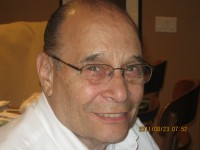Inequities, Representation Levels Seen as Factors in Ward Vote

Mary Helander was doing her shopping at the Stop & Shop supermarket on Route 22 one day during the summer, when she was approached to sign a petition.
That petition, carried by lifelong North White Plains resident Anthony Futia, asked whether the ward system, or districts, should be established in the Town of North Castle, ensuring the town’s two smaller hamlets, North White Plains in the south and Banksville to the north, would always have a resident on the town board representing those areas’ interests.
Since moving to North White Plains 10 years ago, Helander hadn’t thought much about the issue. But since signing the petition, Helander, who works at IBM’s research center in Yorktown, said the effort speaks to an underlying dissatisfaction with her local government that has little to do with the efforts of whomever is serving on the town board but instead is created by geography, division of school districts, lot sizes and socioeconomic factors.
“There’s a feeling of inequity,” she said. “There is a belief, I think, that some of the residents in North White Plains feel like second cousins and are not as important as other parts of the town.”
On Nov. 13, after a controversy was resolved last month regarding the scheduling of the vote, North Castle residents will decide whether the ward system should be established for the town. Voters will also consider a second proposition whether to increase the size of the town board by two members.
If the ward system is approved, the entire town board would be up for re-election every two years.
Futia called the current arrangement of at large voting and representation “a very unfair system.” Town government representatives have not only been dominated by Armonk residents, who haven’t always familiarized themselves with the issues facing North White Plains and Banksville, Futia contended, but the size and political clout of that hamlet overpowers the other areas of town.
Futia said the issue has been a fairly easy sell in his part of town and believes it is also being well-received in Banksville, but he has received pushback in Armonk where many residents, including most of those involved with the town’s political parties, are opposed to the concept.
Both candidates running for the one-year unexpired term on the town board, Democrat Jose Berra and Republican Guy Mezzancello, also oppose the ward system.
In the remaining week before the vote, Futia plans a push to try and convince residents of its virtues.
“We’re very interested to see how that goes because the vote will tell a lot about how people feel about their representation,” he said.
But not everyone in North White Plains shares the same view as Futia and Helander. Fifty-year resident Ed Lobermann, a frequent attendee and speaker at town board meetings, said he understands Futia’s point, but believes that he and his neighbors would have less representation with wards than they do now.
With the current at large system, all voters, including those in the two smaller hamlets, get to decide on all five town board members. If that changes, every voter would vote only for supervisor and the council seat for their ward.
Lobermann said he has been encouraged this year by the current board, praising Councilwoman Barbara DiGiacinto for her monthly Saturday visits to the community center in North White Plains where she is often accompanied by another board member.
However, even if DiGiacinto hadn’t started the monthly meetings, Lobermann said he would still have voted against the ward proposal because of the representation factor.
“I want to be able to vote for all these people even if she was taken away,” he said.”The ward system very much reduces the level of representation.”
Gregory Holtz, professor of public administration at Pace University in Pleasantville, said the establishment of wards–or single-member districts as he calls them to avoid the negative urban connotation–has been typically advocated by those who feel they don’t have a political voice. Historically, communities that are more heterogeneous, particularly those with a variety of ethnic or religious minorities, have opted for wards, most commonly found in cities, he said.
That doesn’t mean that wards wouldn’t work for a smaller municipality like North Castle, Holtz added. He said typical reasons given to oppose wards, such as dividing a community or that it’s only for large cities, are inaccurate. Most small towns don’t have wards because most are homogeneous, or if there’s been an attempt to create wards, the majority is able to maintain the status quo.
“You’re going to have the basic principle of those who are in power want to stay in power, even though they don’t see it as power,” Holtz said. “They see it as a good way of governing.”
Futia, who acknowledged that his motivation for the wards has been repeatedly questioned, denied that he wants to make it easier for himself to get elected to the board. He said he hopes it would encourage more people, particularly younger residents, to get involved in the political process, especially if the trouble and expense of running for office was less onerous.
“You will never see me run for public office again,” Futia vowed.
Holtz said there are well-run municipalities across the United States under each system. It is for the public to decide whether they feel properly represented.
“This isn’t good versus evil,” he said.”This is good versus good. They’re both a good way of governing.”

Martin has more than 30 years experience covering local news in Westchester and Putnam counties, including a frequent focus on zoning and planning issues. He has been editor-in-chief of The Examiner since its inception in 2007. Read more from Martin’s editor-author bio here. Read Martin’s archived work here: https://www.theexaminernews.com/author/martin-wilbur2007/
